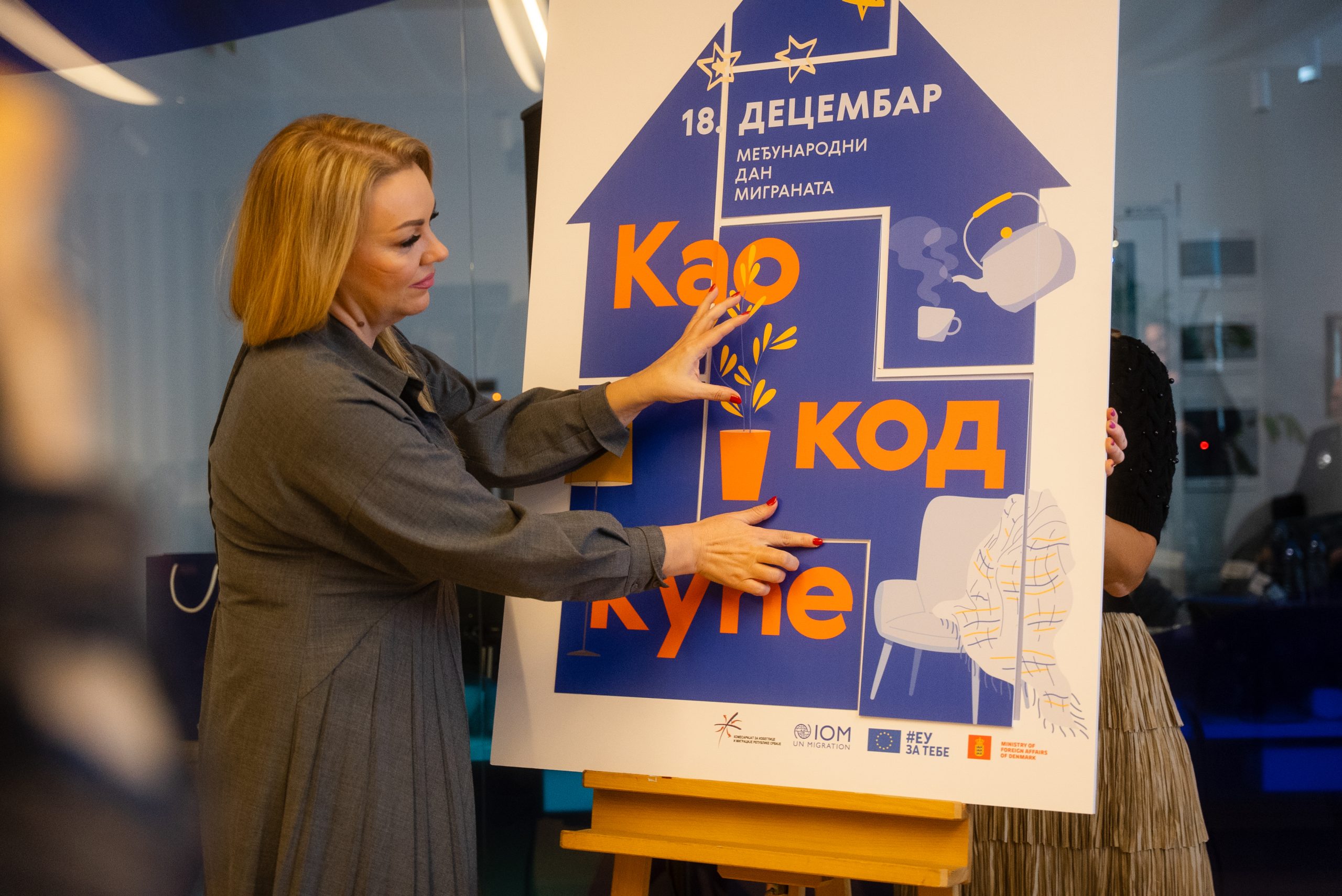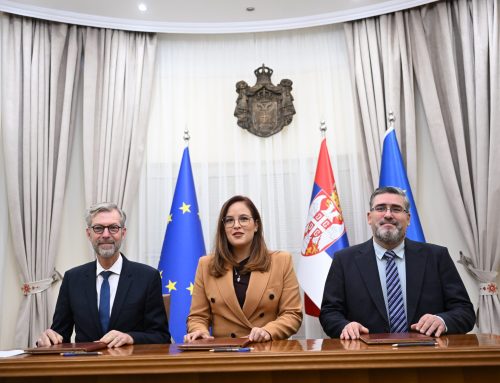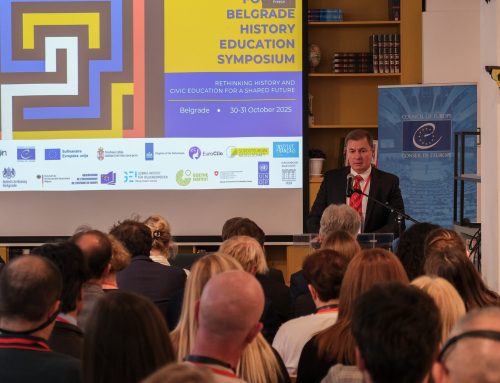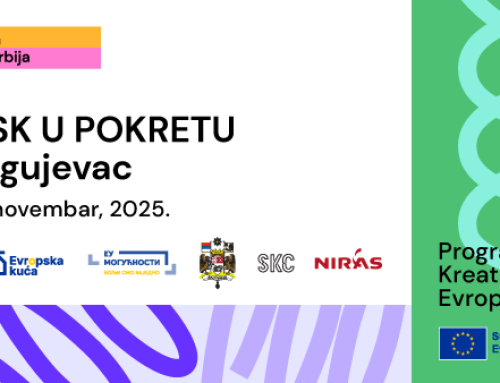In 2024, a significant decrease in migrants passing through Serbia on their way to the EU was recorded, with a decrease of 82%. According to the latest statistical data from the Commissariat for Refugees and Migration, a total of 18,865 people were registered in reception and asylum centers in 2024, compared to 106,742 people the previous year.
These data provide an opportunity to look at the broader picture of migration and its impact on society. On the occasion of International Migrants Day on 18 December, the International Organization for Migration (IOM) in Serbia and the Commissariat for Refugees and Migration of the Republic of Serbia, together with the Delegation of the European Union to Serbia and the Ministry of Internal Affairs, emphasize that migration is not only a challenge, but also an opportunity that can contribute to the development of society, communities and individuals.
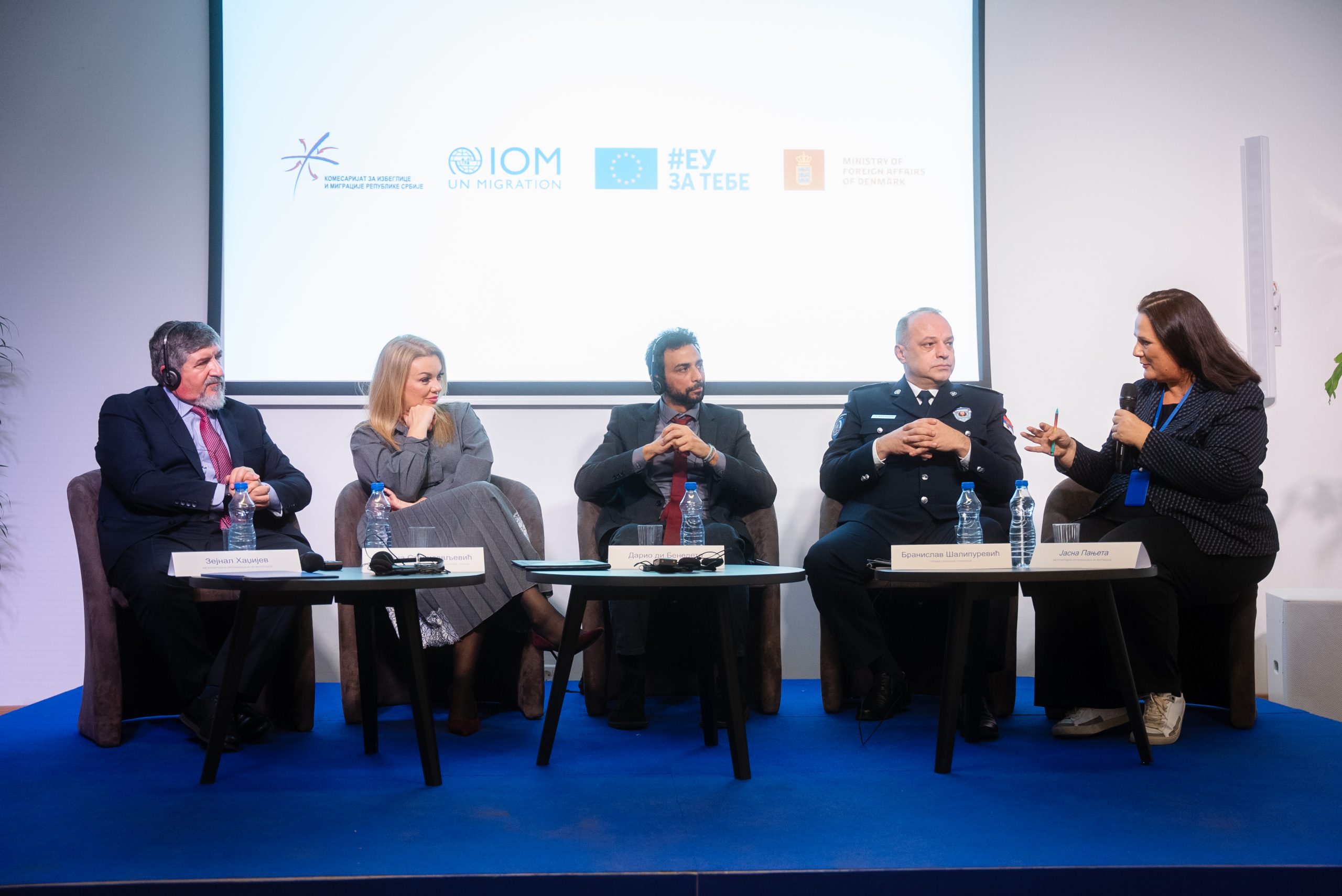
“Migration is not just a national challenge—it is a shared responsibility that requires collaborative solutions. The EU is proud to stand as a committed partner to Serbia in addressing migration and border management, reflecting our collective dedication to both security and the human dignity of those on the move. The EU is the main supporter of Serbia in the area of migration management, including for voluntary returns to safe countries of origin. Since 2015, more than 250 million were allocated to strengthen Serbia’s capacities to respond to the needs of migrants and refugees in accordance with EU and international standards. We’ll continue to work intensively with Serbian Authorities, Member States, EU agencies, IOM and UNHCR in the coming years” said Dario di Benedetto, EU Delegation in Serbia.
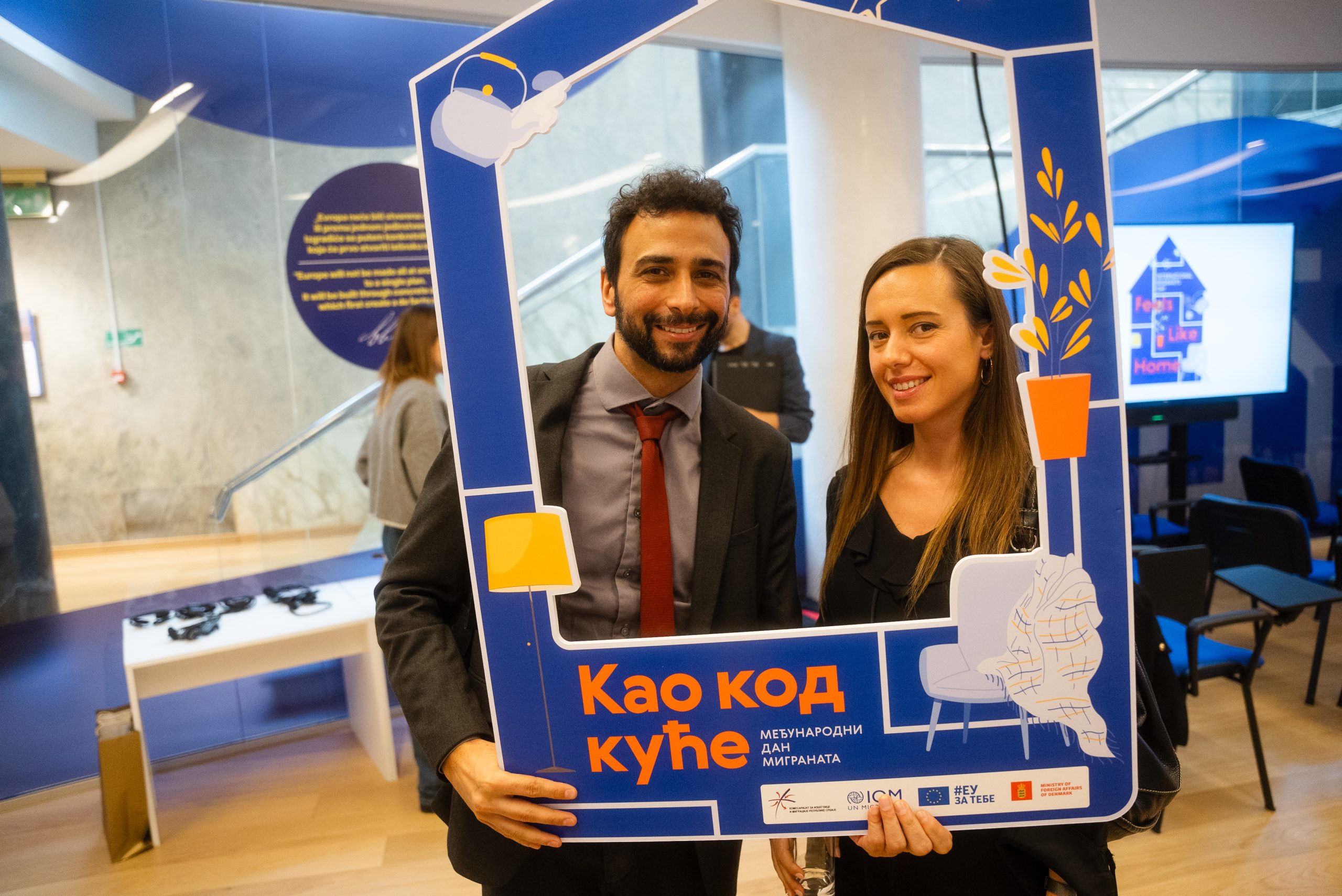
“A large part of migration today is driven by the needs of the labor market, which we observe in the presence of migrants from Egypt, Cuba, Russia, China, Nepal, Sri Lanka, India, Bangladesh, Pakistan who come to the Western Balkans for work opportunities, bringing unique skills and thus stimulating innovation and economic development. There is enormous transformative potential in regular labor migration with an impact on economic growth. “As a country located on an important route, Serbia can, through inclusive policies and international cooperation, use migration as a potential for development, and IOM is working to ensure that foreign workers can exercise their rights in Serbia, in line with international standards and broader efforts to effectively address labor market needs,” said Zejnal Hadzijev, IOM Head of Mission in Serbia.
Nataša Stanisavljević, the Commissioner for Refugees and Migration of the Republic of Serbia, pointed out that over the years, Serbia has shown humanity and willingness to take care of migrants in an organized way, regardless of which country they come from. “With empathy and understanding, we will continue this policy, providing assistance to all who need it. More than a million migrants passed through our country, and adequate care and support represented a great challenge that we successfully overcame. At the moment, seven reception and asylum centers are active in Serbia, where 493 people reside”.
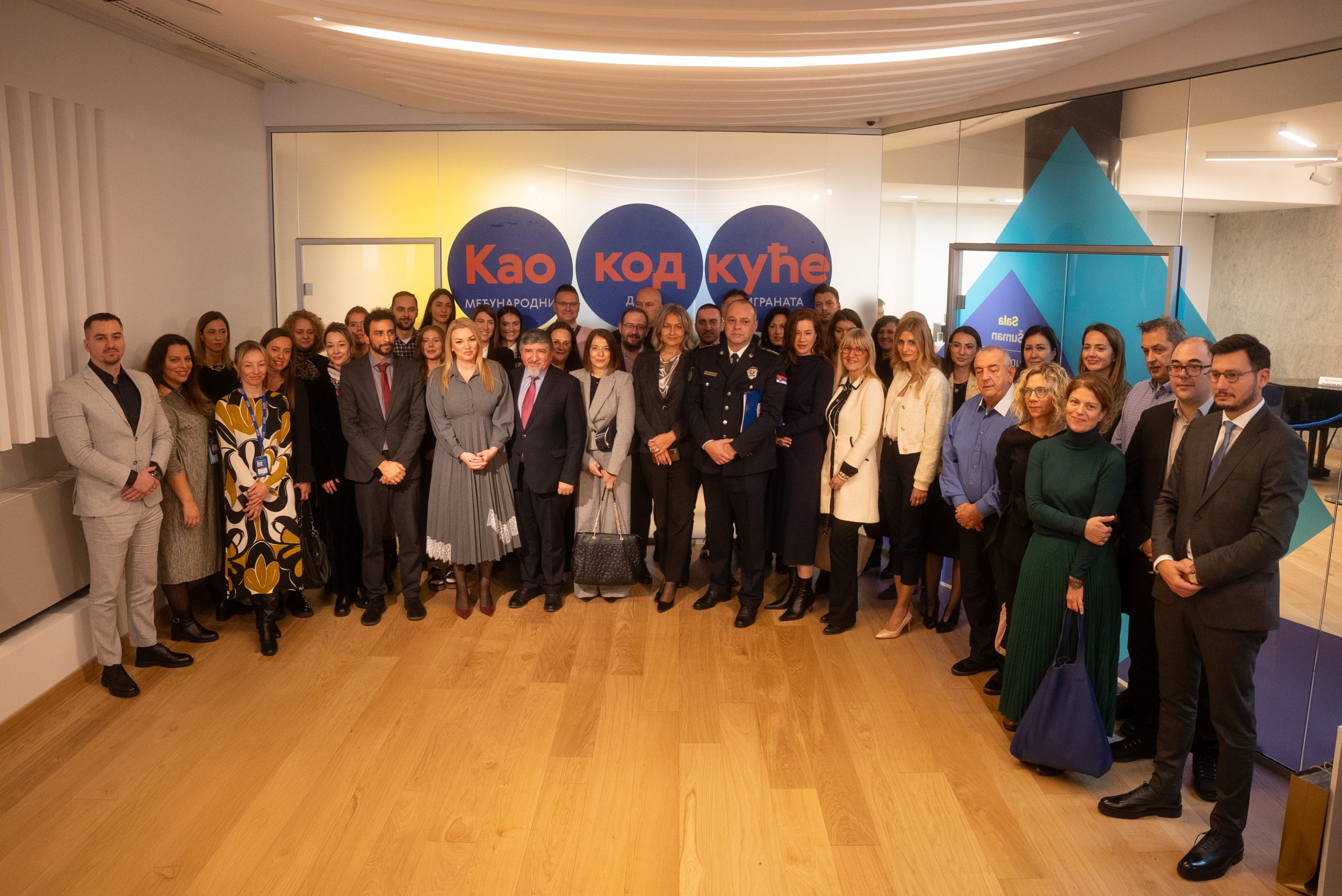
“In order to improve rights-based migration management, Serbia focused on training border police, asylum officers and other relevant authorities on human rights and international protection. Campaigns were also launched to raise public awareness in order to inform the general public and migrants about their rights and obligations”, added Branislav Šalipurević, Deputy Head of the Border Police Administration.
In addition to the above, the fight against smuggling and human trafficking is one of the main focuses of the IOM, with an emphasis on strengthening institutional and legislative capacities in Serbia, while the Commissioner also emphasized that the Commissariat continues to cooperate with all state authorities and will continue to take all necessary measures measures to ensure a humane and responsible approach to migrants, while at the same time preserving public order, safety and health of our citizens, in accordance with the laws of the Republic of Serbia. “All people must have equal rights and treatment, and this is a policy that Serbia consistently adheres to,” concluded the commissioner.
A new AVRR campaign was also presented during the event, which will help migrants who want to return to their countries of origin. During 2024, a total of 103 persons were returned to 23 different countries of origin through the Voluntary Return Program (AVRR), which represents an increase of 14.58% compared to 2023, when 89 persons were returned.
On this day, it is important to remember that migrations are not just statistics, but human stories that carry enormous potential for economic growth and social progress.

